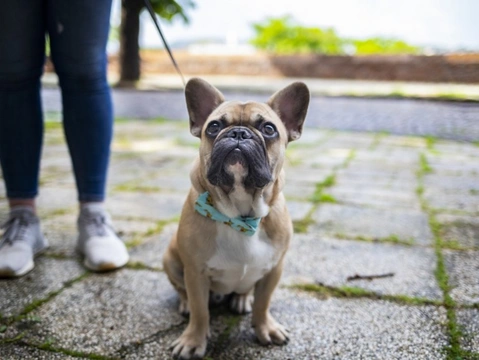
Is Superglue poisonous to dogs?
Dogs will sometimes eat all sorts of weird and wonderful (and not so wonderful) things, many of which are bad for them. Dogs also explore the world with their mouths and will often pick up things in their mouths or bite into them with no intention of actually eating them; and as you can imagine, if your dog picks up and bites into a tube of superglue, this is far from ideal!
So is, superglue poisonous to dogs? Well, the technical answer to this is actually no, but superglue is still very dangerous to your dog if they ingest it or get it on or in their mouth. Superglue or cyanoacrylate is one of many household substances that need to be kept well clear of dogs – and in this article we’ll look in more detail about why this is, and how superglue can pose a danger to you dog, as well as what to do if your dog eats superglue. Read on to learn more.
Is superglue poisonous to dogs?
Superglue or cyanoacrylate (the active ingredient in superglue) is not a poison per se. However, if your dog eats it then it can and probably will cause irritation and internal problems, but this does not fall under the category of poison in the correct sense of the word, as it does not result in a systemic toxicity reaction throughout the dog’s body.
That said, if a dog eats superglue it might well make them very ill, for a number of different reasons.
Is superglue dangerous to dogs?
Superglue is dangerous to dogs if they get it in or on their mouth and even more so if they actually eat it when it is in its liquid form.
Superglue is a very fast-drying glue, and it comes in small quantities; so if your dog ate set superglue, there’s a risk of it causing an internal blockage, but this is less of a risk than if the dog ate superglue in its liquid form.
If your dog eats liquid superglue, it is apt to cause vomiting and irritation of the digestive tract, which will become inflamed and sore as the glue dries. The glue might also form into a solid brittle mass where it dries, causing a blockage; or if it does not cause a blockage in its original location, it will at some point detach from where it started and pass through the rest of the digestive system, where once more it can cause a blockage on the way.
Additionally, even if your dog gets superglue in or around their mouth but doesn’t swallow any, it may stick part of their mouth shut, which is apt to result in your dog pulling, rubbing or scratching at their face to resolve this, and they might well panic whilst doing so and cause themselves a physical injury into the bargain.
Another potential albeit relatively unlikely theoretical risk of a dog chewing or biting into a superglue tube is that it seals their mouth shut entirely, which is apt to result in a very acute panic, which can result in breathing difficulties, not helped by the closed mouth rendering the dog unable to pant.
In brachycephalic breeds like the French bulldog who often have problems breathing through their nostrils and getting enough air by this means alone, this can constitute an acute emergency.
How would you know if your dog ate superglue and what should you do about it?
If your dog has eaten superglue or got it in or around their mouth and it is causing functional problems or distress, your dog’s behaviour and potential panic will almost certainly alert you to the problem, although you may not know what it is.
If you can see a dried white rough crusted surface on your dog’s mouth this might give you a clue, and it might be obvious if your dog is unable to open their mouth fully or pull their lips back from their teeth in the normal manner.
Keep your dog calm and contact the vet immediately; do not attempt to free their mouth by pulling it or otherwise using another substance to try to dissolve the glue, as you might cause further harm.
If your dog has actually eaten superglue, knowing what has happened and putting the pieces together can be even harder, unless you’re missing a tube of glue or can see one with tooth marks in it.
A dog that has eaten superglue may show quite a range of symptoms, most of which won’t make it obvious what is amiss, but which may include:
- Abdominal pain.
- Nausea.
- Retching or coughing.
- Distress.
- Anxiety.
- Crying.
- A hard, taut stomach if a blockage is present.
The symptoms of superglue ingestion in dogs might not develop in short order, and this can make it harder to associate cause and effect. But signs of distress and discomfort such as those outlined above warrant veterinary attention anyway, and if you know or have any reason to suspect your dog might have got hold of superglue in the hours or days preceding this, contact your vet asap anyway, even if they appear to be fine.



